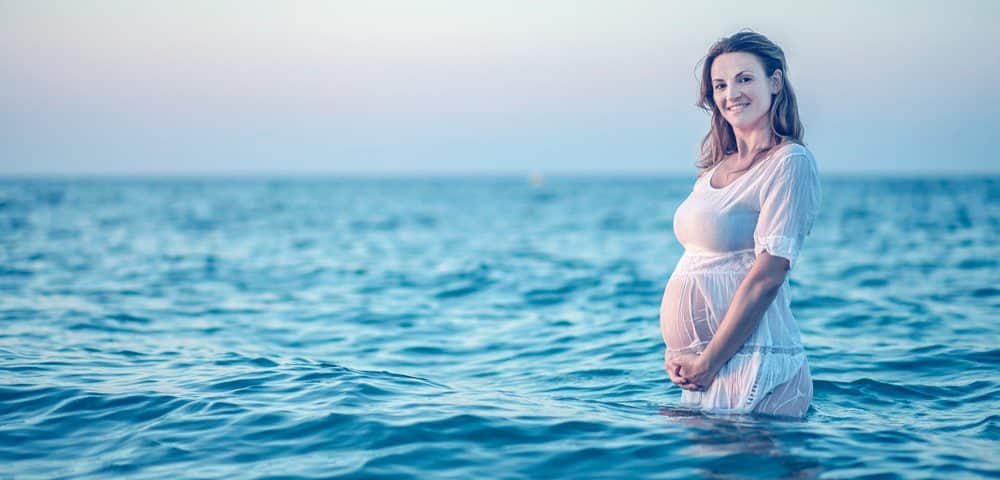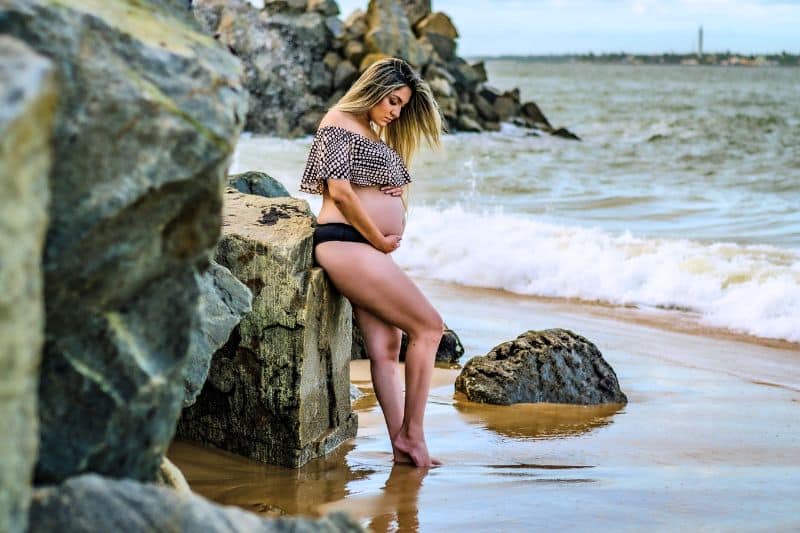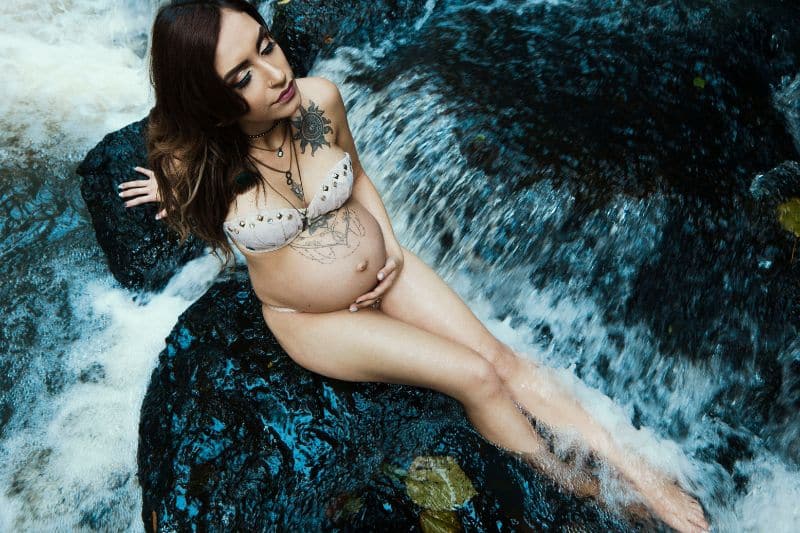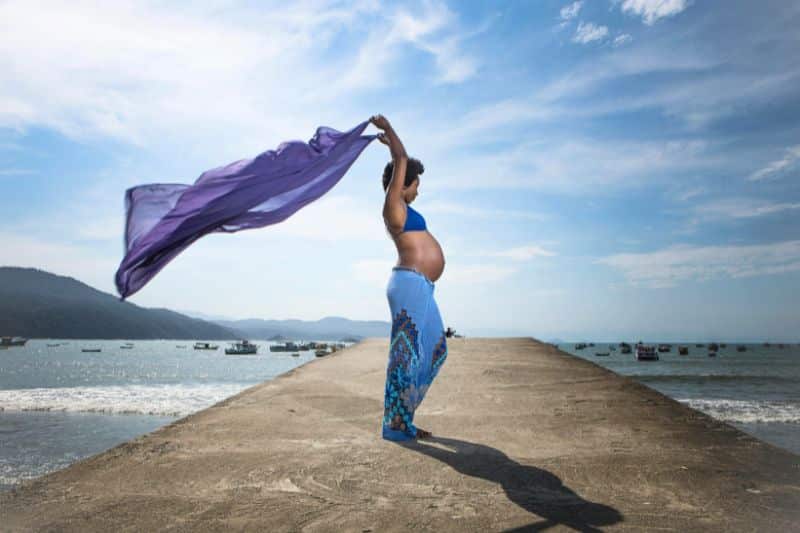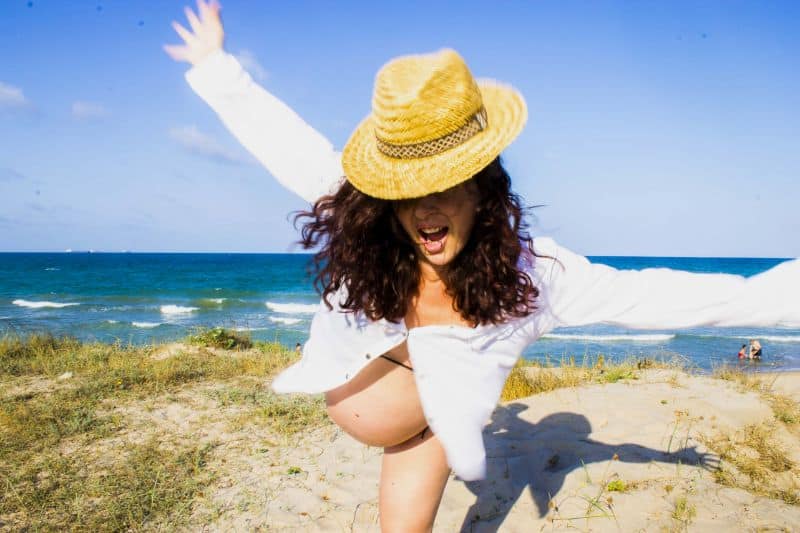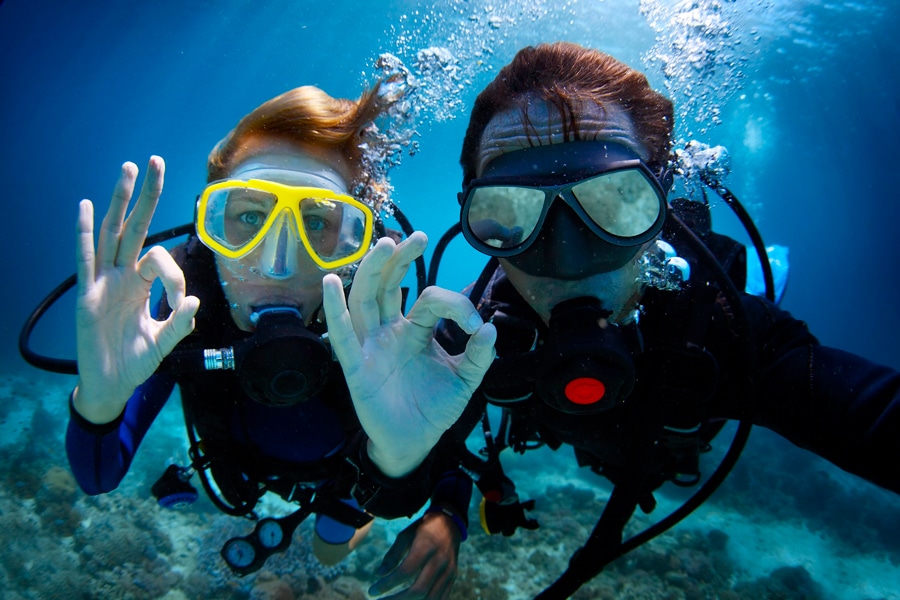3. Scuba Diving While Pregnant: Safe Alternatives
Clara, an avid diver who is expecting her first child, has gracefully embraced this new phase of her life. While scuba diving while pregnant is not recommended, Clara has found ways to stay active and connected to her passion for the water without risking her baby’s health. She’s discovered a range of safe activities that keep her in touch with the aquatic world she loves.
Swimming
Clara often swaps her diving gear for a simple swimsuit and enjoys long swims. Swimming is a safe, low-impact exercise that supports cardiovascular fitness and alleviates common pregnancy discomforts like swelling and back pain. For Clara, it’s not just exercise; it’s a way to stay close to the water and maintain her endurance for future dives.
Snorkeling and Freediving
Although Clara has put scuba diving in pregnancy on hold, snorkeling and shallow freediving allow her to enjoy the underwater beauty safely. These activities provide relaxation and keep her breath control skills sharp. Clara loves spotting fish and coral while staying mindful of her limits.
Aqua Yoga
Clara finds peace in her weekly aqua yoga classes, where she works on flexibility, balance, and breathing techniques. This gentle activity enhances her connection to the water and prepares her for the focused breathing needed in scuba diving.
Water Aerobics
Water aerobics classes have become a favorite for Clara. They’re fun, social, and help her stay fit while being gentle on her joints. The movements mimic some of the physical demands of diving, keeping her muscles engaged and her diving spirit alive.
Water Walking
On days when she craves simplicity, Clara opts for water walking or jogging. These low-impact activities are perfect for maintaining leg strength and cardiovascular health, both vital for finning techniques she’ll use when she returns to scuba diving.
While Clara temporarily sets aside scuba diving during pregnancy, these activities keep her active, healthy, and close to the water. She knows the ocean will be waiting for her when the time is right.
Scuba diving while pregnant is not safe due to known medical risks, but there are plenty of ways to stay active and enjoy the water during pregnancy. Clara’s journey highlights how it’s possible to maintain a connection to the aquatic world through alternative activities like swimming, snorkeling, and water aerobics.
If you’re pregnant and looking for a safe way to explore the underwater world, consider snorkeling with Dressel Divers. Our team can guide you on how to enjoy the ocean safely during pregnancy.
Do you have any questions about scuba diving while pregnant or need personalized recommendations? Contact us.




